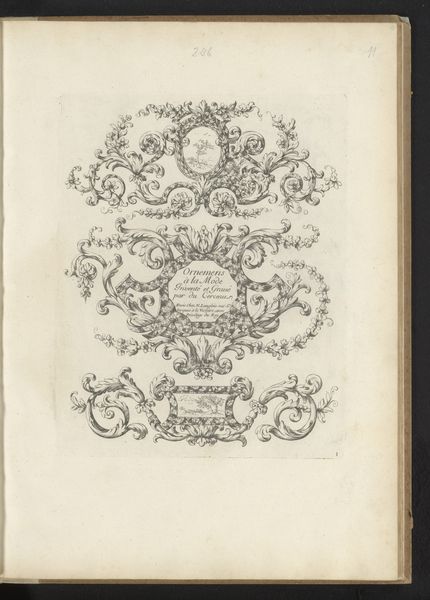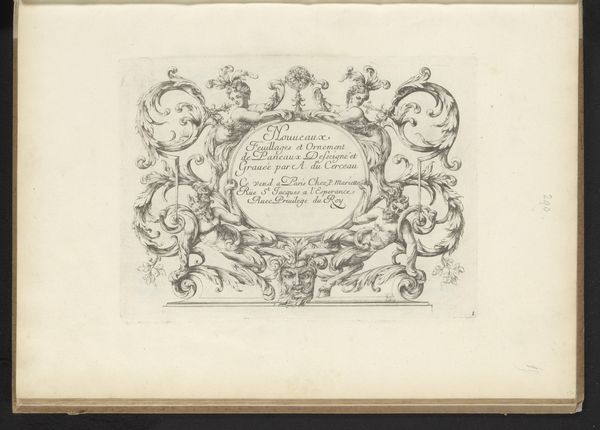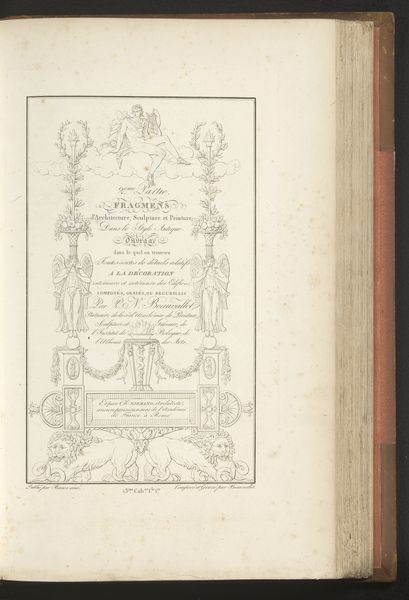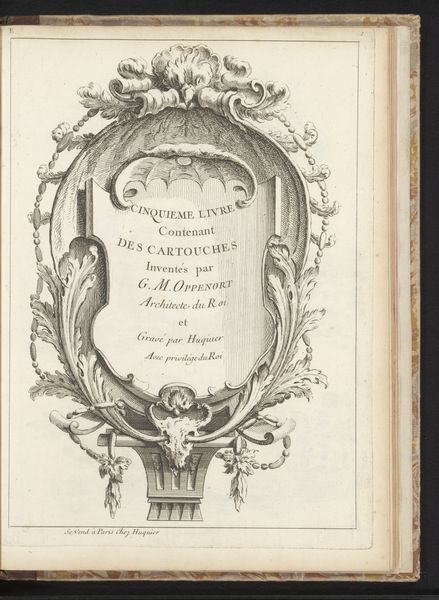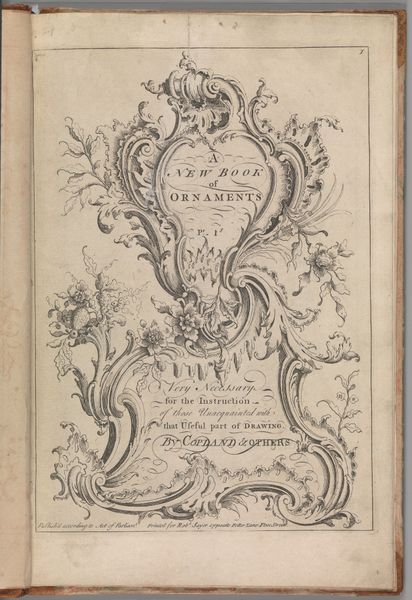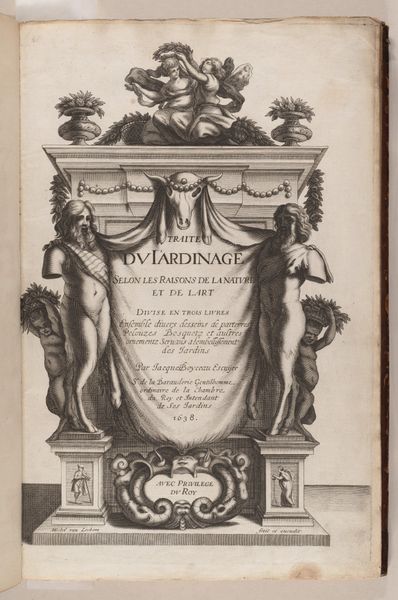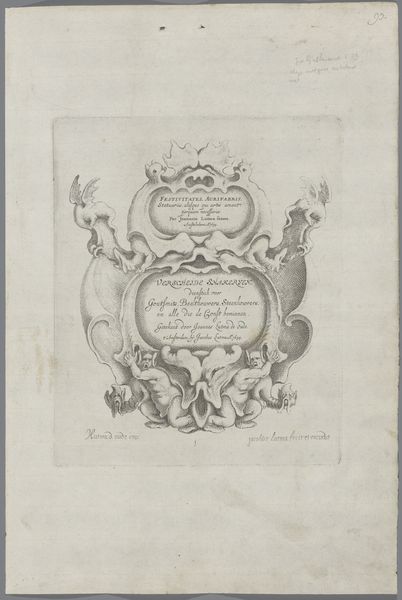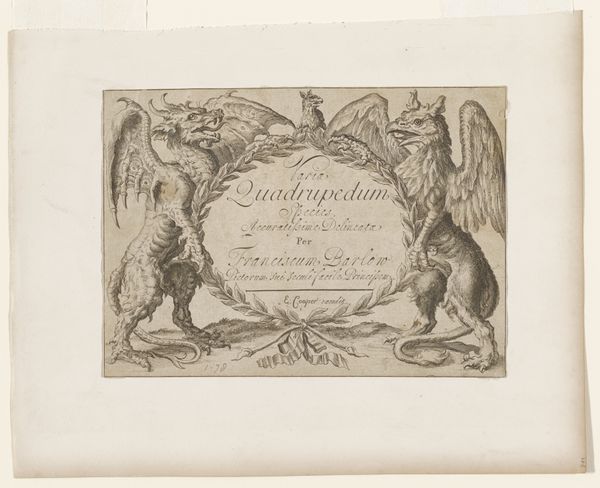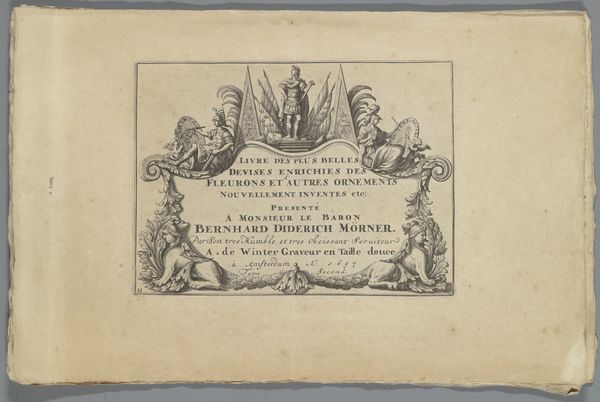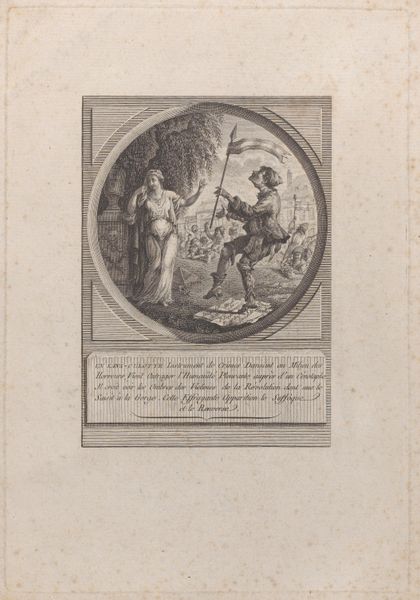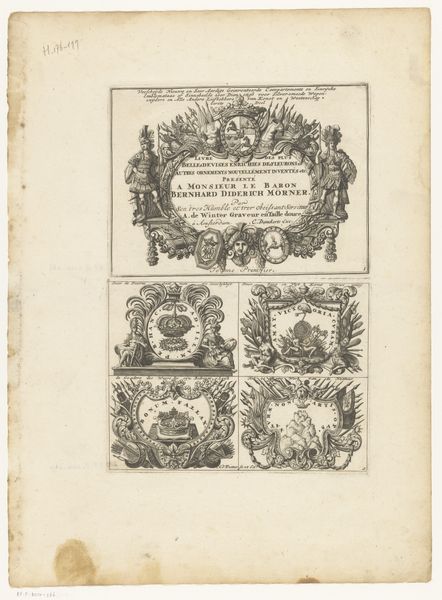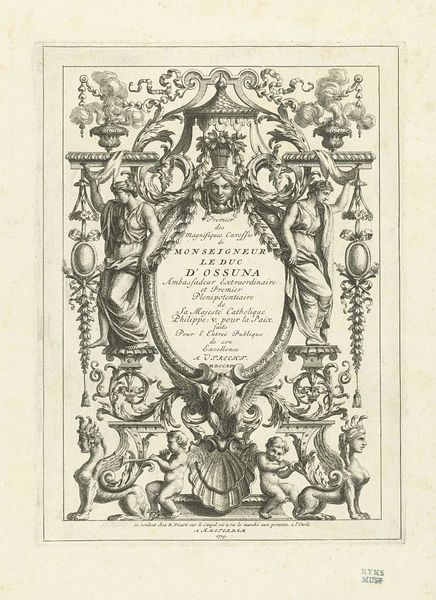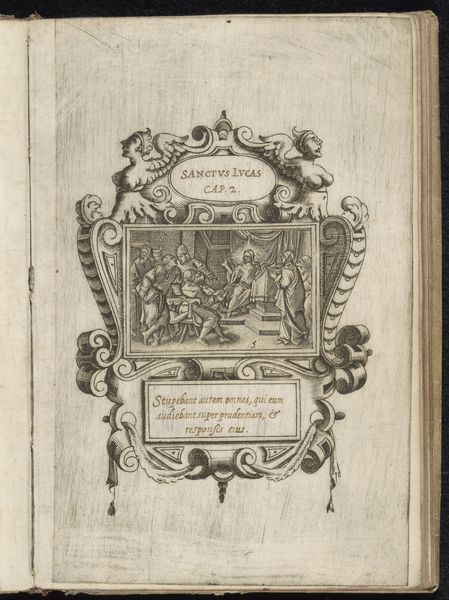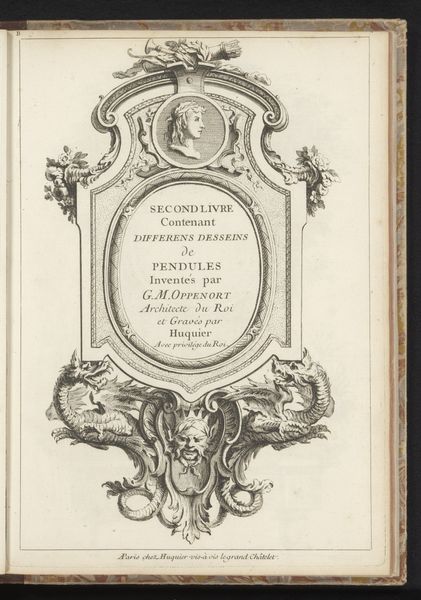
print, engraving
#
aged paper
#
toned paper
#
allegory
#
baroque
# print
#
old engraving style
#
form
#
personal sketchbook
#
pen-ink sketch
#
pen and pencil
#
line
#
pen work
#
sketchbook drawing
#
decorative-art
#
sketchbook art
#
engraving
#
pencil art
Dimensions: height 296 mm, width 197 mm
Copyright: Rijks Museum: Open Domain
This print by Pierre-Edme Babel was made in France in the mid-18th century. It’s an etching, a commercial medium which allowed images to be reproduced and disseminated widely. The print is a title page for a writing manual, dedicated to the Dauphin, the heir to the French throne. The ornate Rococo frame, replete with classical figures like Mercury and a putto, speaks to the values of the French court: elegance, refinement, and a connection to the glories of antiquity. But consider, too, the institutional context: the manual aims to train scribes, the administrators and record-keepers of the French state. Thus, the image can be seen as reinforcing a social hierarchy, legitimizing the power of the monarchy and aristocracy through visual codes. To fully understand this image, we might consult historical sources, such as books on the history of the French monarchy, or studies of the Rococo style. Art history, then, is always a form of social and institutional history.
Comments
No comments
Be the first to comment and join the conversation on the ultimate creative platform.
